Abstract
Recent advances in the field of artificial intelligence have led to the emergence of expert systems, computational tools designed to capture and make available the knowledge of experts in a field. Although much of the underlying technology available today is derived from basic research on biomedical advice systems during the 1970s, medical application packages are thus far generally unavailable from the young artificial intelligence industry. Medical expert systems will begin to appear, however, as researchers in medical artificial intelligence continue to make progress in key areas such as knowledge acquisition, model-based reasoning and system integration for clinical environments. It is accordingly important for physicians to understand the current state of such research and the theoretic and logistic barriers that remain before useful systems can be made available. One experimental system, ONCOCIN, provides a glimpse of the kinds of knowledge-based tools that will someday be available to physicians.
Full text
PDF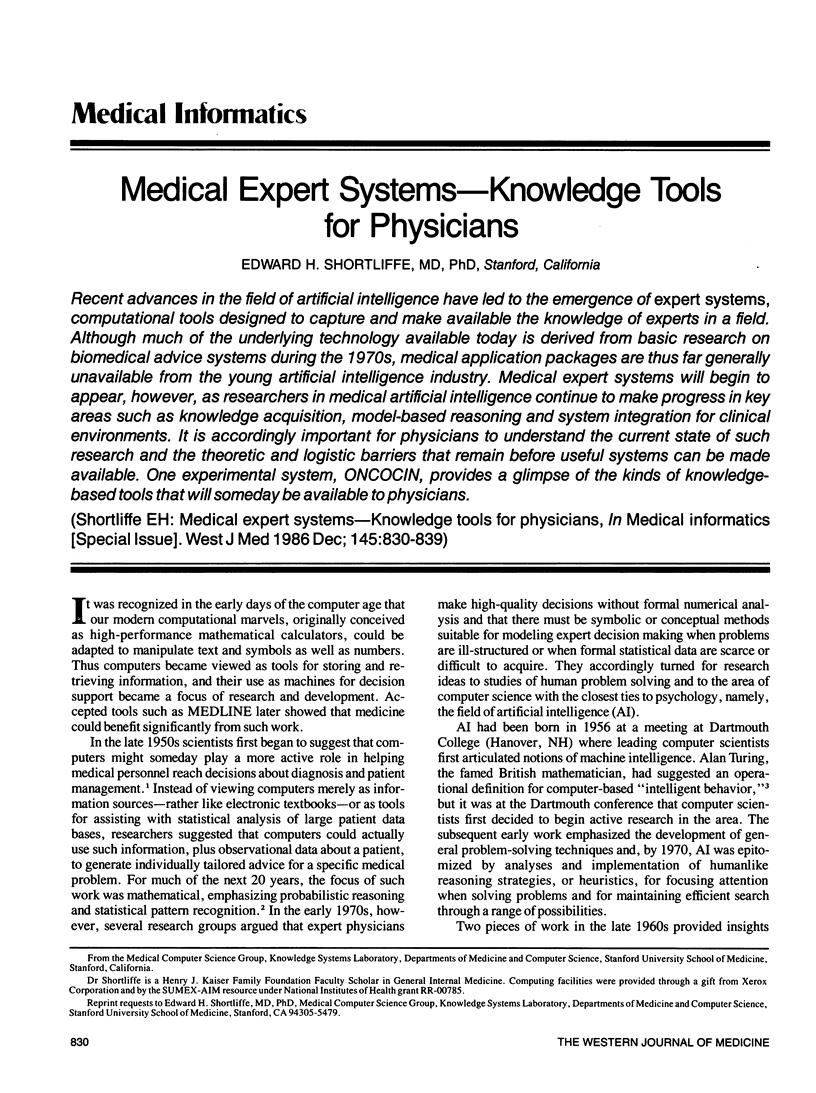
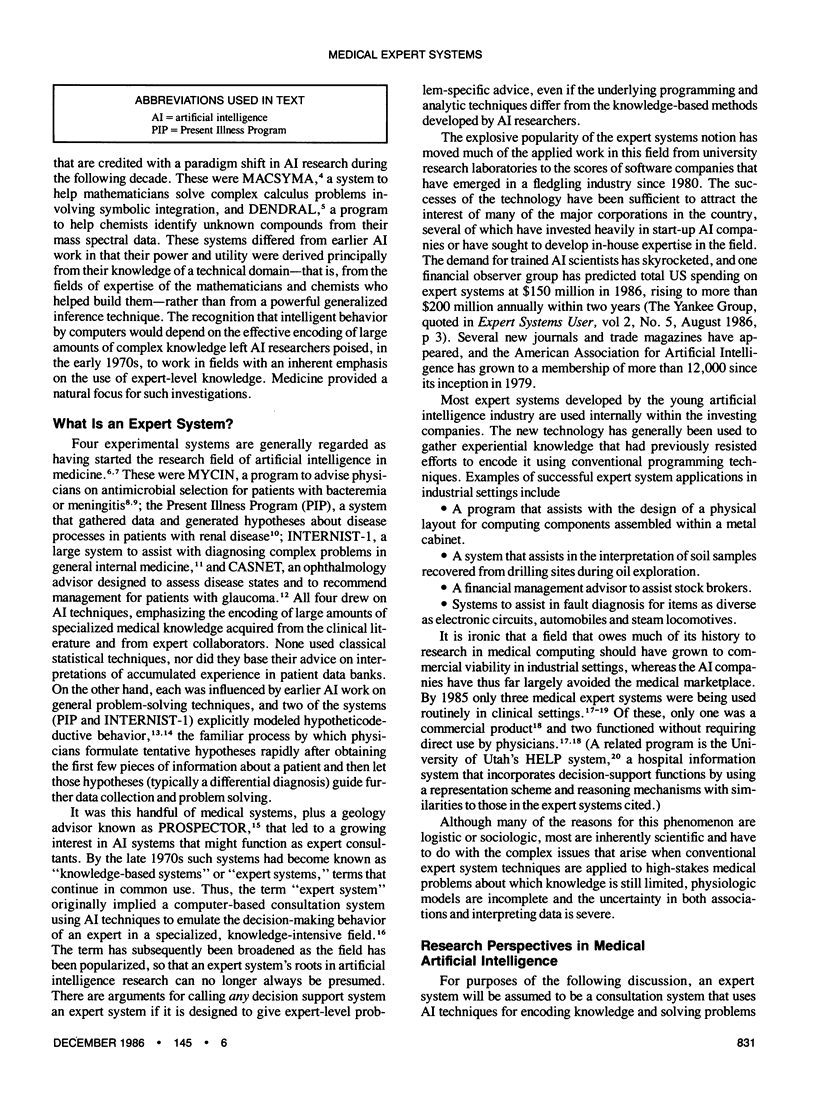
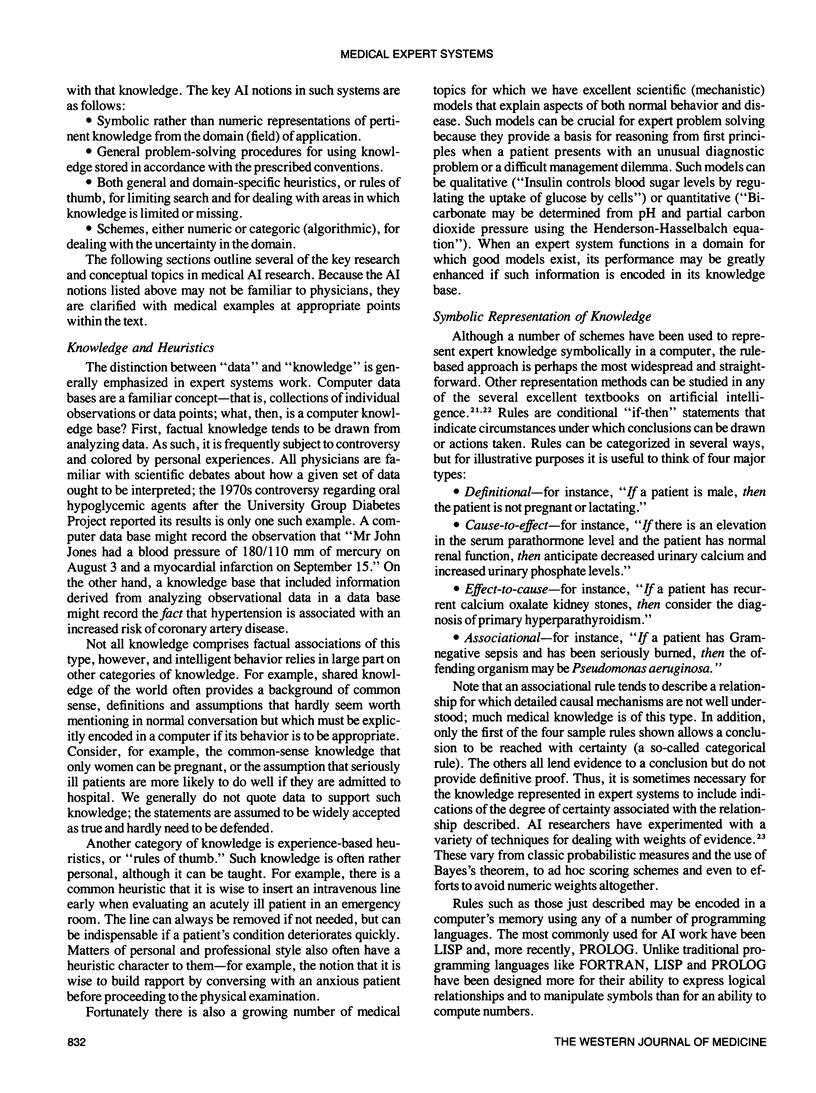
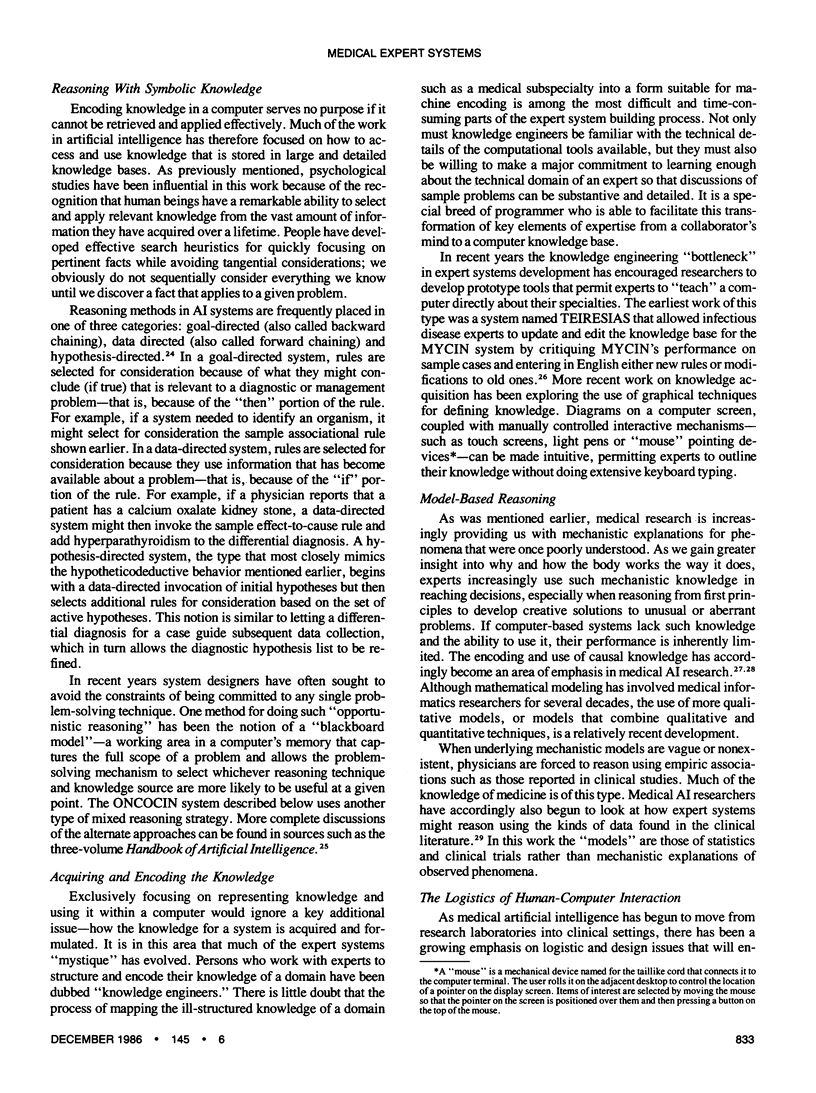
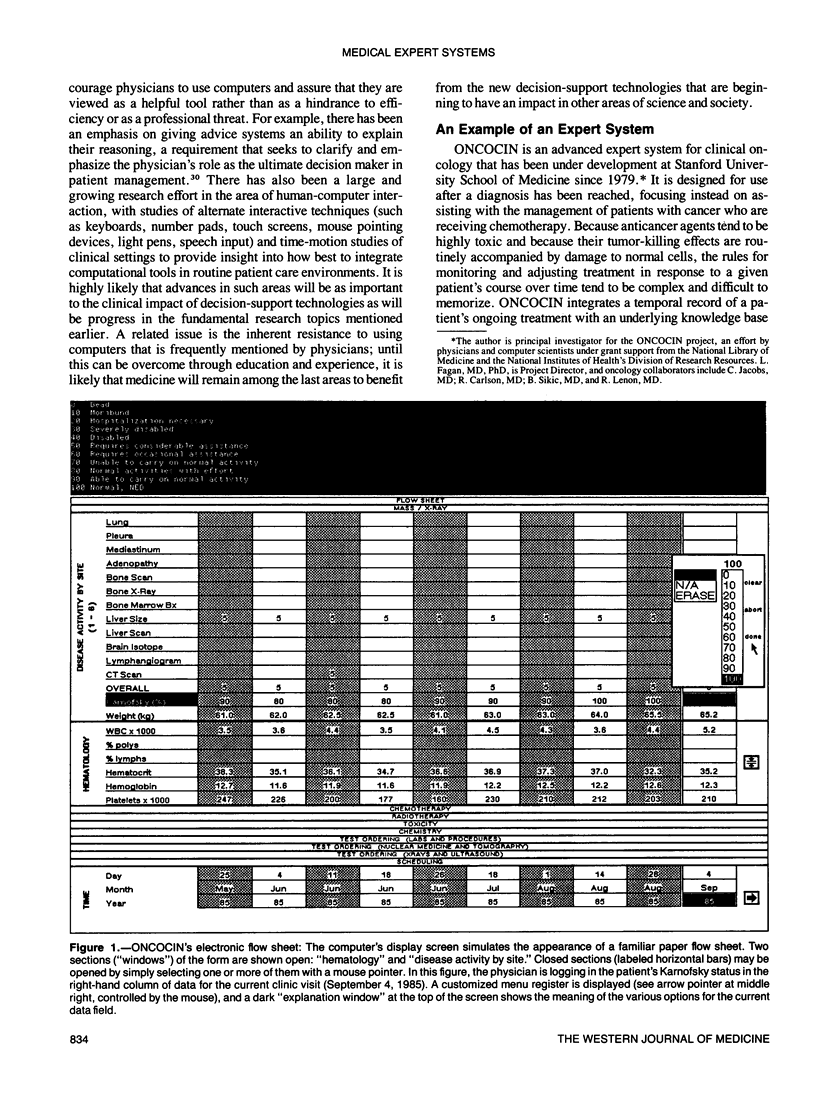
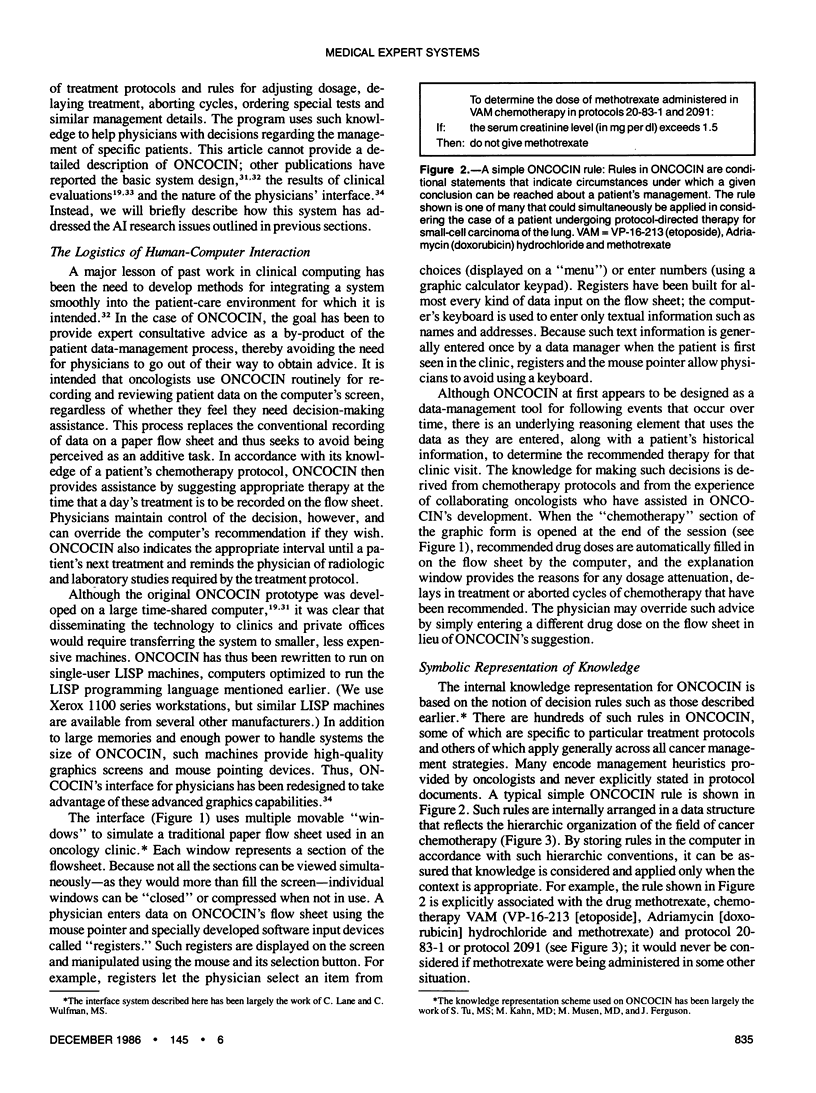
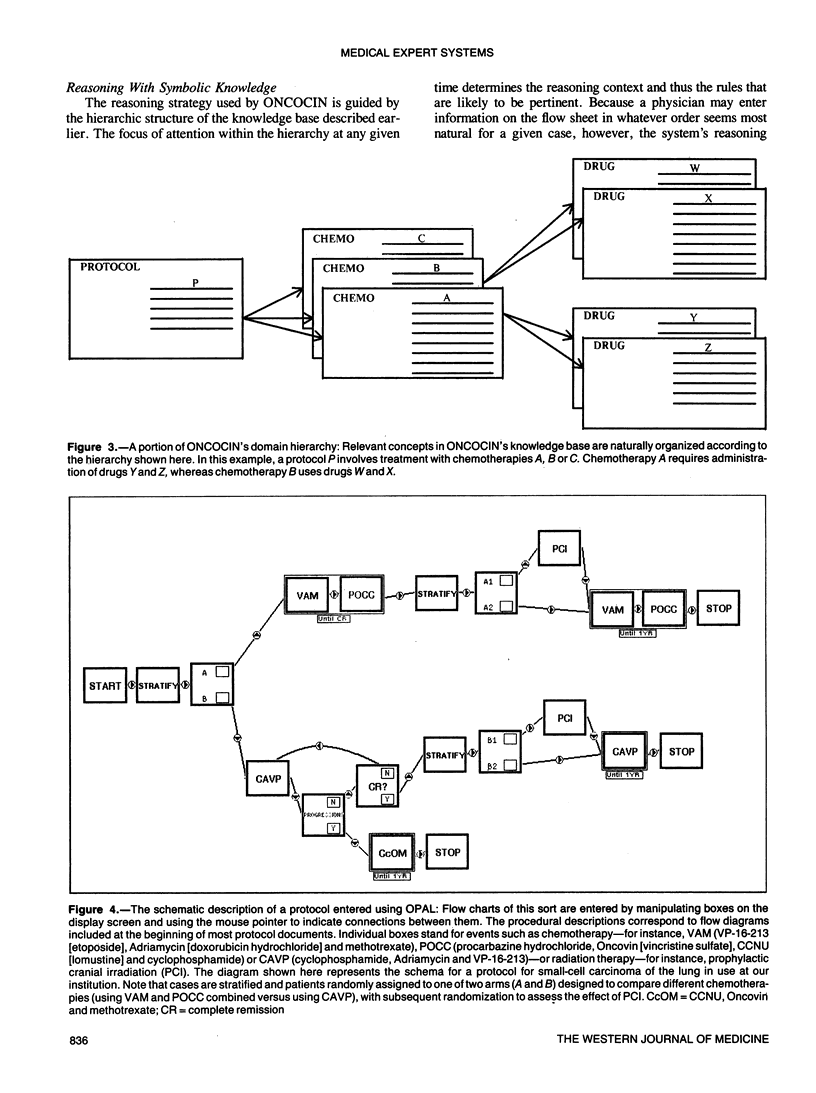
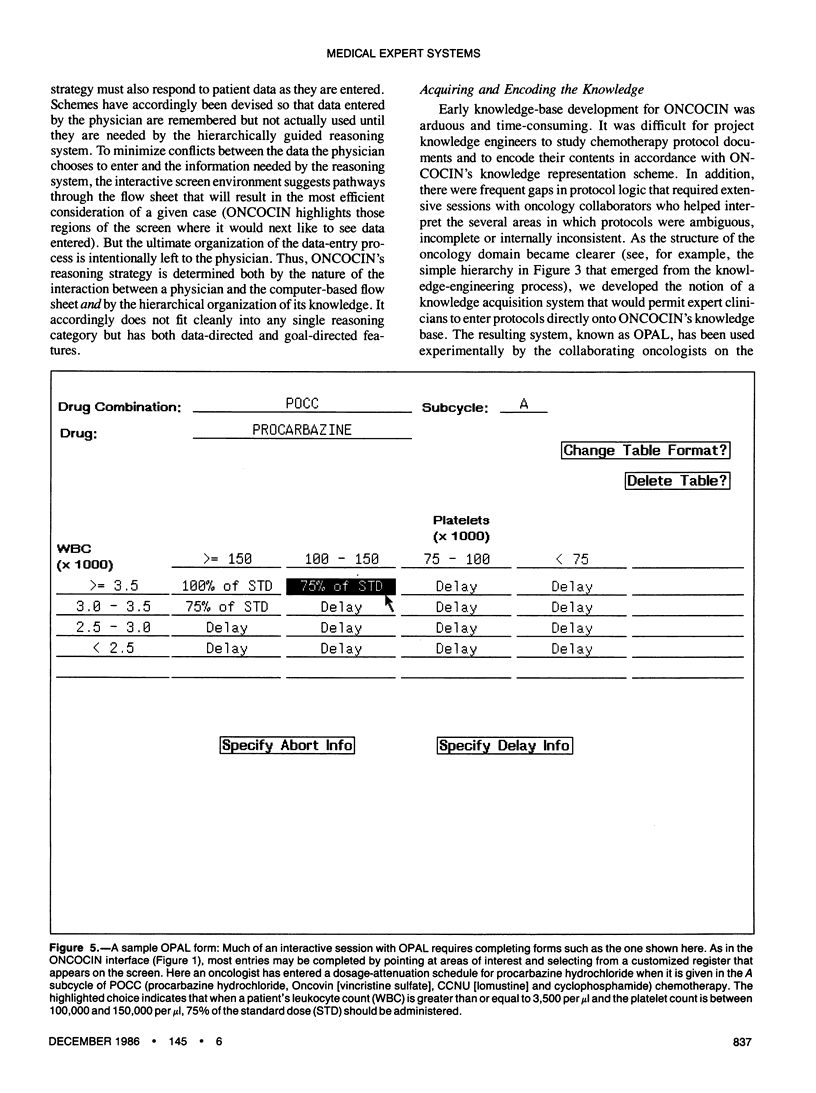
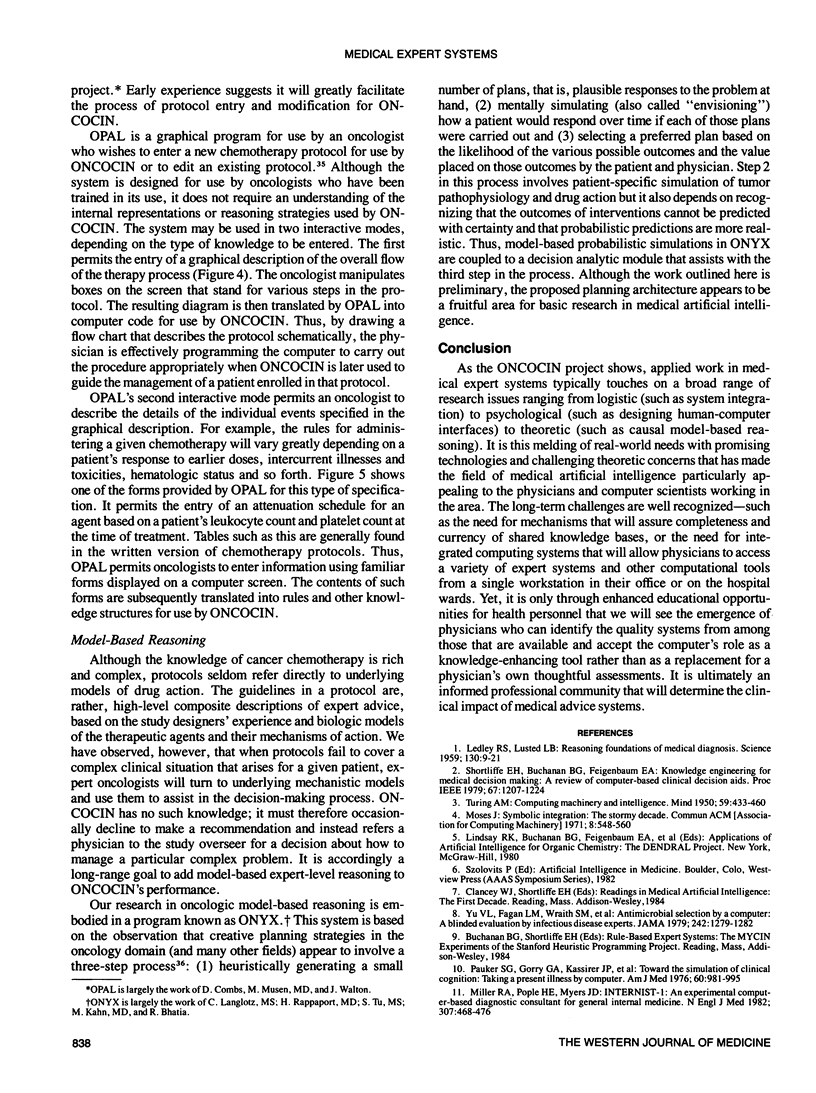
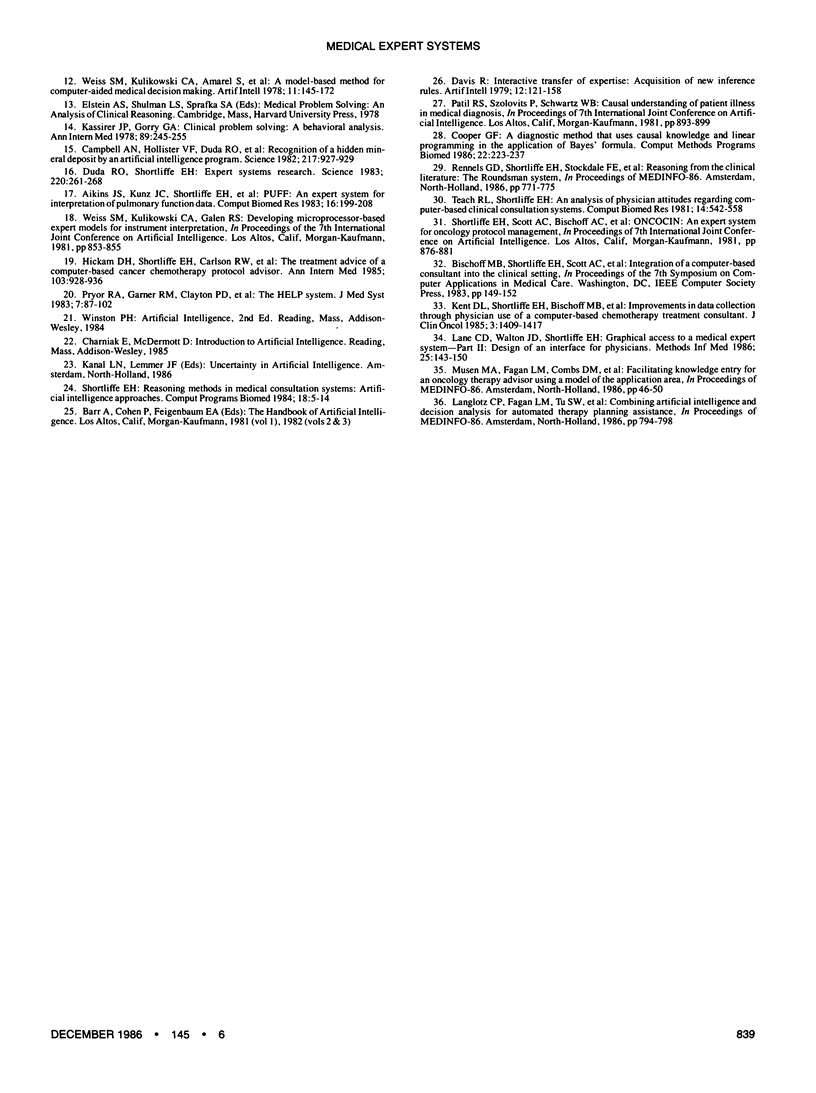
Images in this article
Selected References
These references are in PubMed. This may not be the complete list of references from this article.
- Aikins J. S., Kunz J. C., Shortliffe E. H., Fallat R. J. PUFF: an expert system for interpretation of pulmonary function data. Comput Biomed Res. 1983 Jun;16(3):199–208. doi: 10.1016/0010-4809(83)90021-6. [DOI] [PubMed] [Google Scholar]
- Campbell A. N., Hollister V. F., Duda R. O., Hart P. E. Recognition of a hidden mineral deposit by an artificial intelligence program. Science. 1982 Sep 3;217(4563):927–929. doi: 10.1126/science.217.4563.927. [DOI] [PubMed] [Google Scholar]
- Cooper G. F. A diagnostic method that uses causal knowledge and linear programming in the application of Bayes' formula. Comput Methods Programs Biomed. 1986 Apr;22(2):223–237. doi: 10.1016/0169-2607(86)90024-6. [DOI] [PubMed] [Google Scholar]
- Duda R. O., Shortliffe E. H. Expert Systems Research. Science. 1983 Apr 15;220(4594):261–268. doi: 10.1126/science.6340198. [DOI] [PubMed] [Google Scholar]
- Hickam D. H., Shortliffe E. H., Bischoff M. B., Scott A. C., Jacobs C. D. The treatment advice of a computer-based cancer chemotherapy protocol advisor. Ann Intern Med. 1985 Dec;103(6 ):928–936. doi: 10.7326/0003-4819-103-6-928. [DOI] [PubMed] [Google Scholar]
- Kassirer J. P., Gorry G. A. Clinical problem solving: a behavioral analysis. Ann Intern Med. 1978 Aug;89(2):245–255. doi: 10.7326/0003-4819-89-2-245. [DOI] [PubMed] [Google Scholar]
- Kent D. L., Shortliffe E. H., Carlson R. W., Bischoff M. B., Jacobs C. D. Improvements in data collection through physician use of a computer-based chemotherapy treatment consultant. J Clin Oncol. 1985 Oct;3(10):1409–1417. doi: 10.1200/JCO.1985.3.10.1409. [DOI] [PubMed] [Google Scholar]
- LEDLEY R. S., LUSTED L. B. Reasoning foundations of medical diagnosis; symbolic logic, probability, and value theory aid our understanding of how physicians reason. Science. 1959 Jul 3;130(3366):9–21. doi: 10.1126/science.130.3366.9. [DOI] [PubMed] [Google Scholar]
- Lane C. D., Walton J. D., Shortliffe E. H. Graphical access to medical expert systems: II. Design of an interface for physicians. Methods Inf Med. 1986 Jul;25(3):143–150. [PubMed] [Google Scholar]
- Miller R. A., Pople H. E., Jr, Myers J. D. Internist-1, an experimental computer-based diagnostic consultant for general internal medicine. N Engl J Med. 1982 Aug 19;307(8):468–476. doi: 10.1056/NEJM198208193070803. [DOI] [PubMed] [Google Scholar]
- Pauker S. G., Gorry G. A., Kassirer J. P., Schwartz W. B. Towards the simulation of clinical cognition. Taking a present illness by computer. Am J Med. 1976 Jun;60(7):981–996. doi: 10.1016/0002-9343(76)90570-2. [DOI] [PubMed] [Google Scholar]
- Pryor T. A., Gardner R. M., Clayton P. D., Warner H. R. The HELP system. J Med Syst. 1983 Apr;7(2):87–102. doi: 10.1007/BF00995116. [DOI] [PubMed] [Google Scholar]
- Shortliffe E. H. Reasoning methods in medical consultation systems: artificial intelligence approaches. Comput Programs Biomed. 1984 Feb-Apr;18(1-2):5–13. doi: 10.1016/0010-468x(84)90018-7. [DOI] [PubMed] [Google Scholar]
- Teach R. L., Shortliffe E. H. An analysis of physician attitudes regarding computer-based clinical consultation systems. Comput Biomed Res. 1981 Dec;14(6):542–558. doi: 10.1016/0010-4809(81)90012-4. [DOI] [PubMed] [Google Scholar]
- Yu V. L., Fagan L. M., Wraith S. M., Clancey W. J., Scott A. C., Hannigan J., Blum R. L., Buchanan B. G., Cohen S. N. Antimicrobial selection by a computer. A blinded evaluation by infectious diseases experts. JAMA. 1979 Sep 21;242(12):1279–1282. [PubMed] [Google Scholar]



